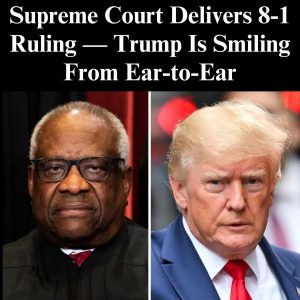
The U.S. Supreme Court has reinstated a federal anti-money laundering law at the request of the federal government, issuing an emergency ruling that allows enforcement of the Corporate Transparency Act (CTA) while a legal challenge proceeds in a lower court. The decision temporarily lifts a federal judge’s injunction that had blocked the law’s implementation, ensuring that millions of business entities must continue to disclose personal information about their owners.
The ruling was issued as part of the Court’s emergency docket, often referred to as the “shadow docket,” where decisions are made without full briefing or oral arguments. The 8-1 decision saw Justice Ketanji Brown Jackson as the lone dissenter, arguing against the reinstatement of the law at this stage of the litigation.
The Corporate Transparency Act, enacted in 2021, was designed to combat illicit financial activities, including money laundering, tax evasion, and fraud. The law mandates that most corporations, limited liability companies (LLCs), and similar business entities disclose beneficial ownership information to the Financial Crimes Enforcement Network (FinCEN), an arm of the U.S. Department of the Treasury.
Opponents of the CTA argue that it places an undue burden on small businesses, requiring extensive reporting that could be costly and complex. The National Small Business Association (NSBA), one of the plaintiffs challenging the law, contends that the requirements violate privacy rights and exceed Congress’s constitutional authority.
A federal district court judge had previously ruled in favor of the NSBA’s challenge, issuing an injunction that blocked the law’s enforcement. The judge found that the law improperly extended federal power over small businesses and could potentially infringe on the rights of individuals by requiring them to disclose sensitive information without sufficient privacy safeguards.
The Biden administration, however, argued that the CTA is a critical tool in preventing financial crimes and ensuring that criminals cannot exploit anonymous shell companies to hide illicit activities. In an emergency appeal, the government urged the Supreme Court to allow the law to remain in effect while litigation continues, citing the significant national security and economic risks posed by delaying its enforcement.
By granting the emergency stay, the Supreme Court sided with the administration’s position, emphasizing the importance of anti-money laundering efforts in maintaining financial transparency and security.
Justice Ketanji Brown Jackson’s dissent raised concerns about the Court’s increasing use of emergency rulings in significant policy matters. She argued that the lower courts should have been allowed to fully adjudicate the case before the Supreme Court intervened. “This Court’s decision to grant emergency relief in this case risks undermining the normal judicial process and setting a concerning precedent for future cases,” she wrote.
The case now returns to the lower courts, where the legal battle over the Corporate Transparency Act will continue. Business groups and legal experts anticipate further challenges, including possible appeals that could bring the case back to the Supreme Court for a more comprehensive ruling.
In the meantime, the reinstatement of the CTA means that businesses across the country must comply with its reporting requirements or risk facing penalties. The decision has sparked debate among lawmakers, business leaders, and legal experts over the balance between financial transparency and regulatory overreach.
As the legal challenge progresses, the outcome could have significant implications for federal regulatory power, corporate accountability, and the future of anti-money laundering enforcement in the United States.